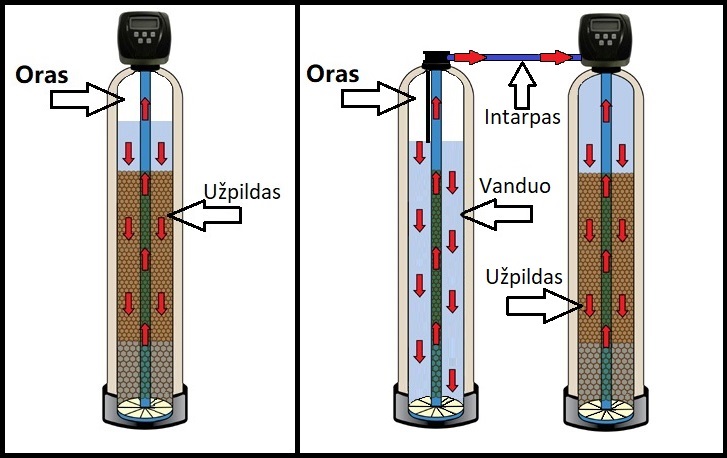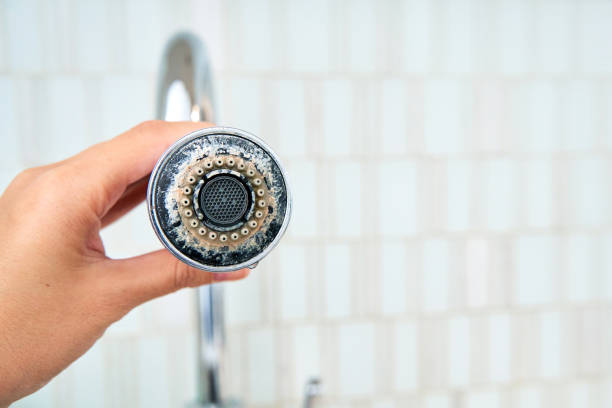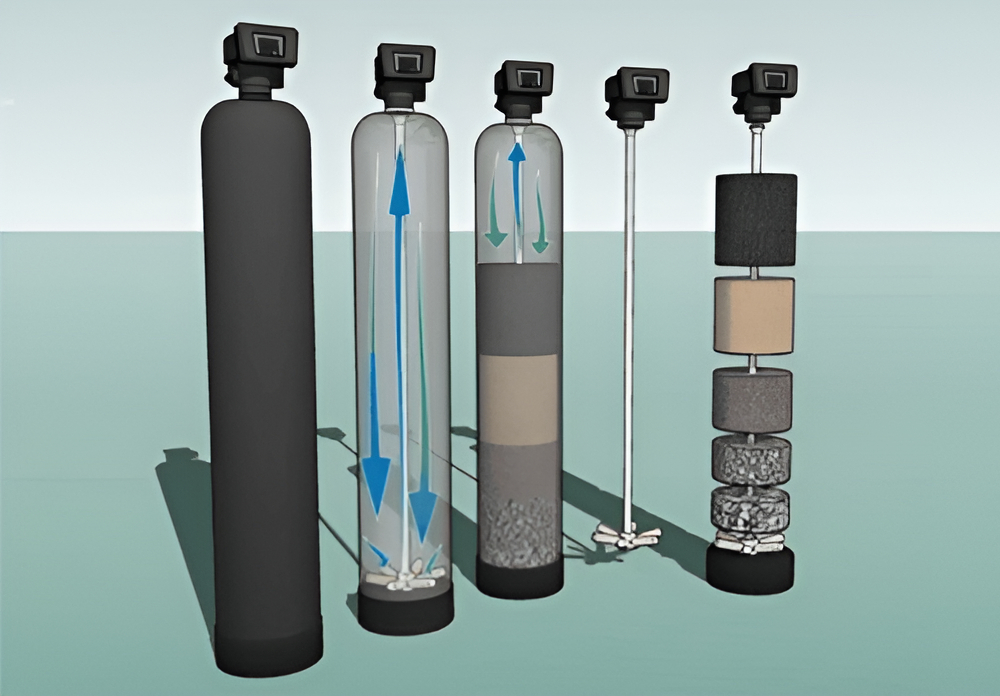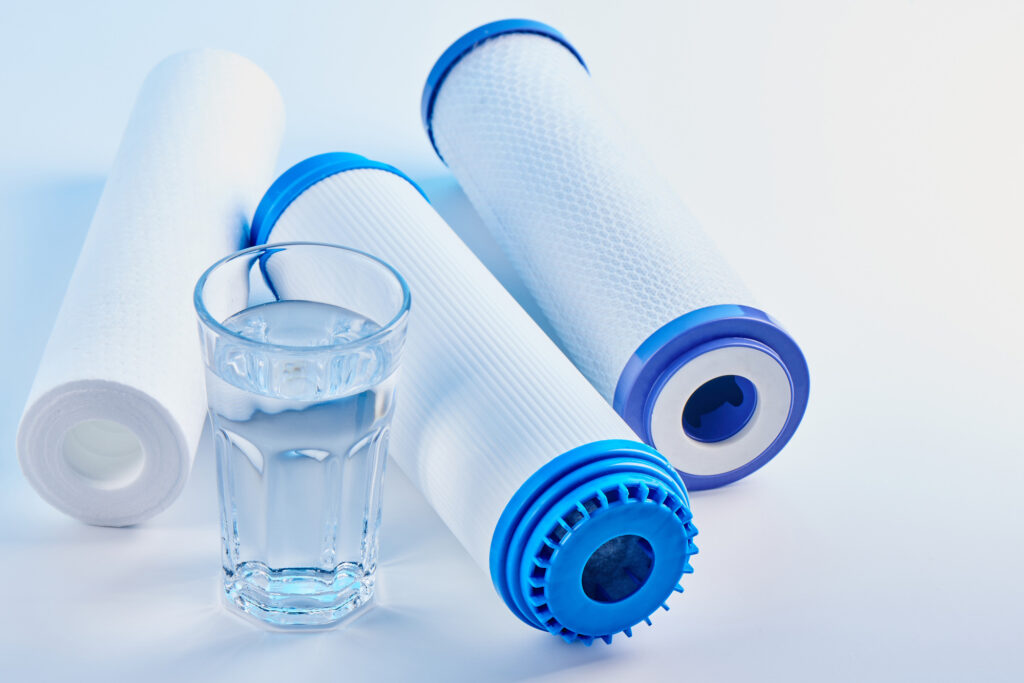
Mistakes in choosing a water filter are quite common. Ignoring important things,may not only reduce the efficiency of the filter, but also cause additional problems that results in the filter not working at all. The best solution is to contact a specialized water filters company directly, but if you decide that you have some knowledge in this area, here are a few recommendations to avoid the most common mistakes:
1. No water test
Mistake: People often choose a water filter without knowing their exact water problems. In other words, they don't know what needs to be filtered from their water. Without a detailed water analysis, it is difficult to choose a filter that will address the relevant problems such as hardness, iron excess, organics or other problems.
Solution: Before purchasing a water filter, it is essential to carry out a water quality test. This can be done by yourself using various water test kits, but the tests may be inaccurate or incomplete, which will again have a negative impact on the performance of the filters. It is recommended to deliver water to certified laboratories or water testing agencies for the most accurate results. Equally important is the correct collection of the water sample for testing.
2. Knowledge shortages and plenty of choice
Mistake: People are often easily tempted by different filtration technologies and do not understand which filter best suits their needs. As a first example, carbon filters remove chlorine and organic compounds but are ineffective against heavy metals or bacteria. As a second example, in the presence of higher levels of iron in the water, a number of companies propose to install only water softening but program it to regenerate more often than normal. At first sight, this seems like a good solution for someone who doesn't understand the detailed workings of a softening filter, but the truth is different. The softening filter media will not release iron from itself during regeneration as it does with limestones. As a result, you will be commited to keep adding citric acid or another chemical to the filter, which will not only require additional maintenance but will also shorten the life of the media.
Kitas dalykas yra tai, jog esant didesniam kiekiui geležies, minkštinimo filtras turės plautis dažniau, o tai reiškia, kad druskos sąnaudos bus didesnės, nei įprastai. Didesnis druskos dozavimas, nei būtina, keičia vandens skonines savybes ir jis tampa nepriimtinas vartojimui. Todėl iš pirmo požiūrio „pigesnio” varianto pasirinkimas ir vartotojo pririšimas prie pastovių eksploatacinių išlaidų ilgame laikotarpyje ne tik kad neatsiperka, tačiau tampa ir nuostolingas naudotojui, bei emociškai vargina visą vandens filtro eksploatavimo laikotarpį.
Solution: Learn about the different types of filters and their effectiveness against different substances. For example, reverse osmosis filters remove most pollutants, but their capacity is relatively low, so they are usually stationary, e.g. installed in a kitchen for cooking or consumption.
3. Ignoring maintenance and running costs
Mistake: People often buy a filter without considering its maintenance requirements and running costs. For example, for water filters that have chinese control valves requires annual servicing. This is because they are still high quality and will not work reliably without constant maintenance. American-made control valves do not require any annual maintenance costs. Preventive maintenance once every three years or more is enough. Another example is water iron removal filters. Modern water treatment technologies allow you to combine water deironing and softening. One filter is enough for this purpose, instead of the usual two to three (iron removal two tanks and softening one). So, if there is a problem, you will only need to deal with one filter instead of two or three. It is worth noting that this new type of iron removal and softener filter does not require air inlet mechanisms, which can also fail over time. To sum up, the necessary costs are reduced by up to 3 times!
Solution: Before you buy a water filter, please familiarise yourself with its maintenance requirements. Calculate the long-term running costs and whether this will make up for the money you saved at the beginning of the equipment purchase.
4. Choosing the cheapest option
Mistake: In order to save money, some consumers choose the cheapest filters because they think that all filters work the same way. It doesn't. Often, such filters are ineffective or only effective for a very short period of time (often not even lasting the warranty period).
Solution: Investuokite į kokybišką filtrą, kuris ilgainiui padės sutaupyti pinigų ir užtikrins geresnę vandens kokybę. Kartais geriau iš pradžių išleisti daugiau, kad vėliau išvengtumėte didesnių problemų. Klaidos renkantis vandens filtrą
5. Underestimation of filter capacity and water consumption
Mistake: When choosing a filter, it is important to consider its capacity, especially if you have a high water demand or want to fill your hot tub or swimming pool with filtered water during summer time. Choosing a smaller filter for larger volumes of water can lead to rapid wear of the water filter media or ineffective water filtration.
Solution: Evaluate your household water needs and choose a filter with the right size and performance to meet your needs. If you have a large family or use a lot of water, it is advisable not to buy the smallest capacity filter.
6. Lack of space and need underestimation
Mistake: Some filters require special installation conditions or more space. Not taking these needs into account when designing the room or rooms where the water filters will be located can lead to unpleasant problems due to space shortages or space redesigning.
Solution: Before buying water filters, carefully consider the size of the equipment and the space available. Make sure that the filter you choose fits your installation conditions and has enough space for optimal performance.
Mistakes when choosing a water filter can be avoided if you familiarise yourself with the most common mistakes before buying water filtration systems. By avoiding these mistakes, you can ensure that you choose the water filter that best suits your needs and provides clean and safe water for your household. Some of the most common mistakes when choosing a water filter include rushing and not understanding the details, so to have clean and healthy water, we recommend taking your time. A filter is a long-term investment and should only be made after careful consideration.




